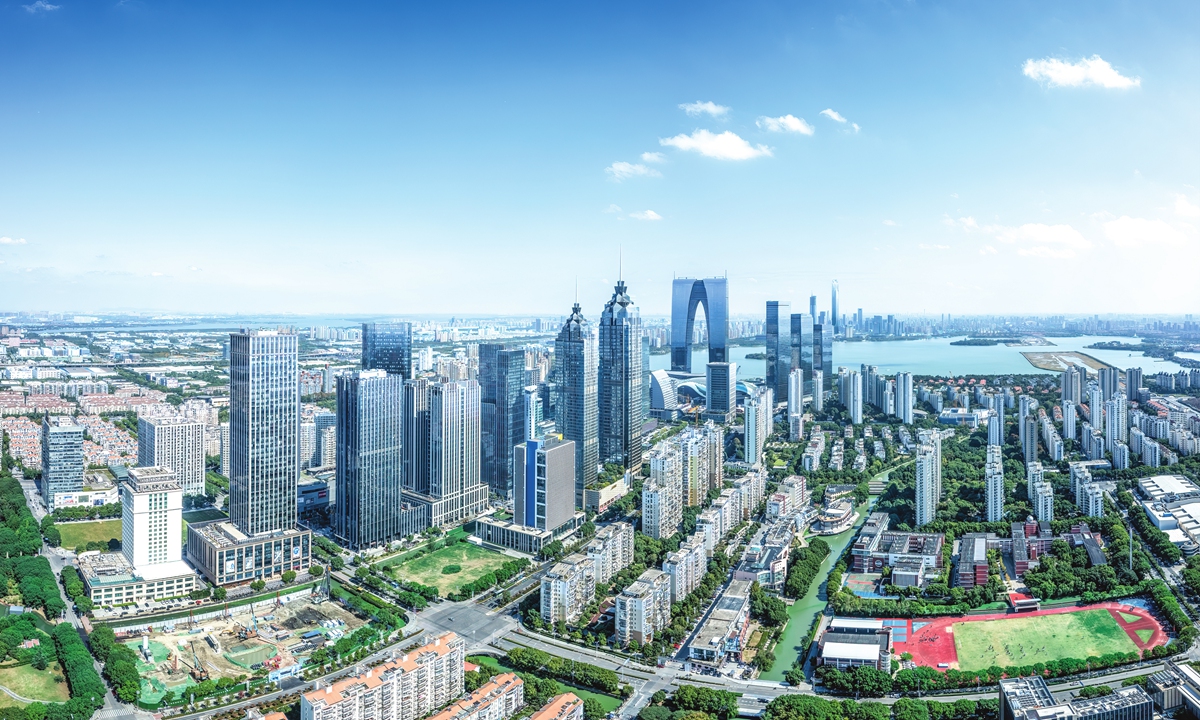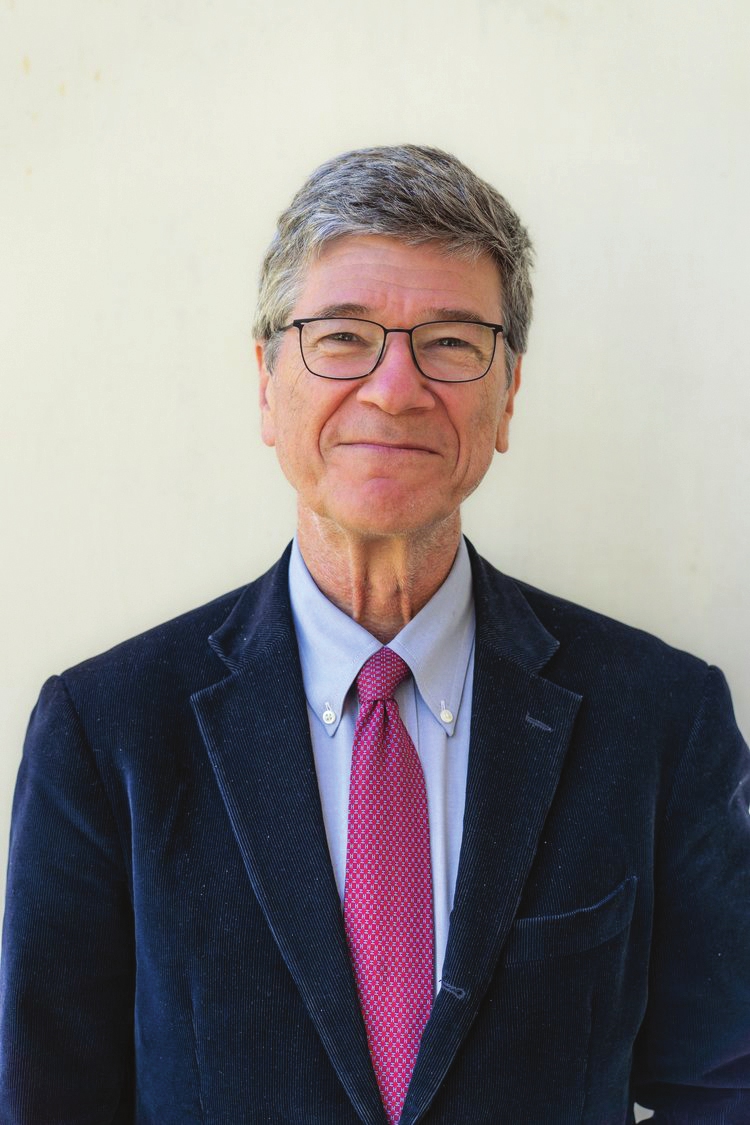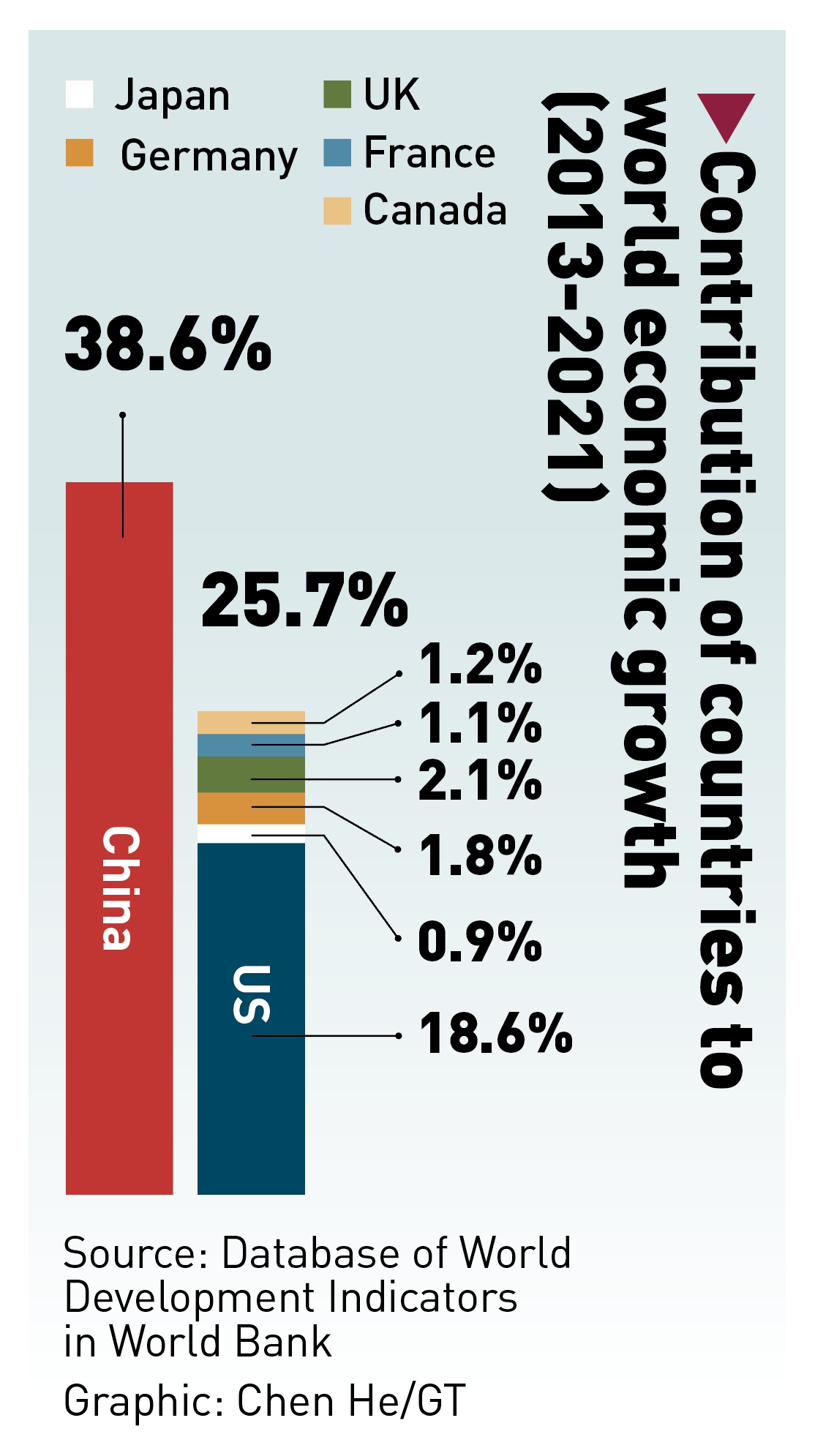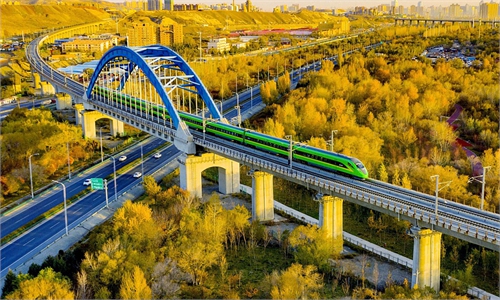World can count on robust growth of China’s economy in 2023: economist at Columbia University


A view of Suzhou, East China's Jiangsu Province Photo: VCG
Editor's Note:
In the face of great external uncertainty caused by continued geopolitical conflicts and political interference in normal economic and trade cooperation, China has set its economic growth target at 5 percent this year. The modest target mirrors China's confidence in achieving steady economic growth while promoting transformation for quality growth. As the US' misguided policy stokes the possibility of more severe impacts on the global economy, will China realize a strong economic recovery this year? How should China continue to play the important role of a stabilizing force and contributor to the global economy? In an interview with the Global Times reporter Wang Yi (GT), Jeffrey Sachs (Sachs), renowned American economist, and professor at Columbia University, shared his views on these topics.

Jeffrey Sachs Photo: Courtesy of Jeffrey Sachs
GT: What is China's economic recovery outlook in 2023? Will there be a V-shaped recovery?
Sachs: China can expect robust economic growth based on the continuing build-out of 5G, green energy, and other core infrastructure. China will be a major exporter of technology and infrastructure to Southeast Asia, Africa, and Latin America as well. I think we can count on robust growth.

GT: For years, the Western perception of the Chinese economy has alternated between two extremes: The "China collapse" theory, or the "China threat" theory. Bloomberg said recently that China's economic recovery could be the "next big threat to global inflation." What's your opinion on these narratives?
Sachs: China is neither about to collapse nor threaten the world economy. These are overheated reactions by US commentators.
GT: What are the major challenges to the gloomy global economy in 2023? How should major economies across the world jointly tackle these challenges? How can pushing the global economy toward a more precarious situation be avoided?
Sachs: The key to global recovery and prosperity is peace. Unfortunately, the US is exacerbating geopolitical tensions rather than solving them. The US is deliberately trying to divide the world economy between a US-led component and a China-led component. This is dangerous and destructive, including to the US itself. The war in Ukraine could end quickly if the US agreed to stop trying to expand NATO to Ukraine and Georgia. That attempt at NATO expansion is the underlying reason for the US-Russia conflict.
GT: Amid the US' push for trade and tech "decoupling," what is the role of China's economy in solving global economic problems, such as inflation and supply chain disruptions?
Sachs: China should focus on maintaining good economic relations with the entire developing world, and hope that Europe doesn't blindly follow the US neoconservative policy of stoking conflict with China.
GT: How do you view the progress of China's economic transformation and China's efforts to promote high-quality development? Is the Belt and Road Initiative (BRI) increasingly becoming a sustainable development plan based on clean energy, 5G, and other advanced technologies?
Sachs: China is on a good course, but needs to accelerate the transformation of green, digital development. This is because the climate crisis is worsening globally very rapidly. We will likely reach the 1.4C warming above pre-industrial temperatures within the next few years. The disruptions, including to China, will be very large. Fortunately, China can help lead the world in photovoltaics, advanced digital technologies, green hydrogen, electric vehicles, battery storage, green steel (using hydrogen rather than coking coal), and other pivotal technologies.
GT: Did you follow the 20th National Congress of the Communist Party of China (CPC) held in October 2022? What is the role of the CPC in China's development? What does the consistency of China's policy as well as China's stability mean for the world?
Sachs: China's pursuit of "common prosperity," 21st-century solutions grounded in ancient Chinese ethics, and global harmony and sustainable development, are all notable parts of China's policy framework. I support all of these. I especially hope that China will continue with a Green BRI to help developing countries build and finance modern, green, digital infrastructure for the 21st century.
GT: Do you think another Cold War is avoidable? In the short and medium-to-long term, how do you see the consequences of the US containment strategy against China to the world?
Sachs: The US policy is completely misguided, and based on ignorance of history. American politicians believe that it is America's right to lead the world, even though the US represents a mere 4 percent of the world population. American politicians know very little about world history, geography, or the interests of other parts of the world. It's all very sad and dangerous, as it stokes the possibility of war. American politics and mass media tend to vastly oversimplify complex issues, and to present heavily biased and self-serving views. Most of all, we need dialogue, mutual understanding, negotiation, disarmament, and reduction of tensions.

